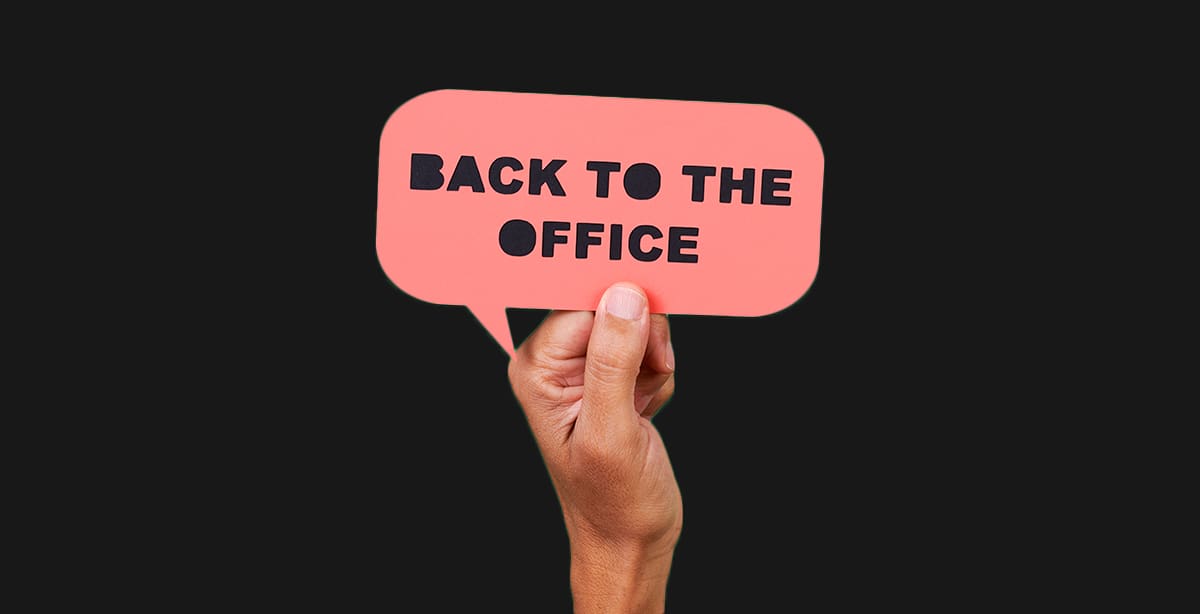After (for many of us, at least) three-plus years of working from home, much of the American workforce is now facing mandates to return to the office, at least for a portion of the workweek. And in addition to bringing back the daily commute and tamping down the frequency of our on-the-job videoconferences, this transformation will bring a big change that, for many workers, will hit even closer to home (and the closet): the need for a workwear update.
Of course, while T-shirts, sweatpants and ball caps often made the cut when working at home, the in-office work requirement will force many workers to add more office-appropriate attire to their wardrobe. And for brands in the apparel industry, this could present big opportunities.
Things won’t be quite the same as it was before COVID came onto the scene, though. In many cases, there’s been an evolution to what “business casual” means in the wake of the pandemic. And for apparel brands, this could affect the strategies they employ, both in the clothing they produce and in the ways they choose to market it.
3 ways work attire has changed — and how apparel brands can adapt
So just how has the definition of “business casual” evolved, and how could it impact today’s apparel brands? Read on for apparel-marketing expert Brandon’s thoughts on a trio of recent developments in office professionals’ work attire, and how apparel brands can adapt to the changes.
1. Dress codes are generally getting looser
With the widespread adoption of remote work and the blending of professional and personal spaces, the once-strict and formal dress norms have given way to a more relaxed and versatile approach. Many companies now prioritize comfort and flexibility over traditional corporate attire, recognizing the importance of employee well-being and productivity — beyond just on “casual Friday.”
This shift in office dress codes presents a unique opportunity for apparel brands to adapt their marketing strategies to cater to the evolving needs of the modern workforce. Brands can emphasize comfort and style in their collections, offering a range of clothing that seamlessly transitions from the home office to in-person meetings. The focus should be on creating a balance between professionalism and comfort, with clothing that is not only appropriate for virtual meetings but also suitable for a casual work environment.
Moreover, marketing campaigns can highlight the versatility of clothing items that suit professional and personal settings, promoting the idea that individuals can effortlessly move between work and leisure without compromising their style. Collaborations with influencers and professionals who embody this new approach to workwear can also be instrumental in showcasing the brand’s commitment to the changing dynamics of the workplace. Overall, as office dress codes continue to evolve, apparel brands that embrace this shift and tailor their marketing strategies accordingly are poised to thrive in the post-pandemic era.
2. ‘Dress for the day’ is becoming a trend
In the post-pandemic business landscape, a notable trend gaining momentum is the “dress for the day” ethos, reflecting a more dynamic and adaptable approach to professional attire. With the blurring of lines between office and home spaces, individuals are embracing a wardrobe that caters to the specific demands of their daily activities. This trend emphasizes the importance of flexibility, encouraging professionals to choose clothing that aligns with their schedule, whether it be a day of back-to-back meetings, collaborative projects or focused remote work.
Apparel brands can capitalize on this movement by offering curated collections that cater to various work scenarios. This might include smart and comfortable pieces suitable for videoconferences, athleisure options for days focused on individual tasks, and stylish-yet-relaxed ensembles for more casual collaborative settings. Marketing campaigns can promote the idea that clothing is a tool for success, empowering individuals to tailor their outfits to their daily objectives and environments.
Collaborations with influencers who embody this versatile approach to dressing for success can be instrumental in conveying the brand’s messaging. Additionally, brands can leverage technology by incorporating augmented reality (AR) or virtual try-on experiences in their online platforms, allowing customers to visualize how different pieces fit different professional scenarios. By aligning with the “dress for the day” trend, apparel brands can position themselves as allies in the evolving narrative of workwear, catering to the modern professional’s need for adaptable and purpose-driven clothing.
3. Workers are spending less on business wear
With the COVID pandemic mostly behind us, a noticeable shift in consumer behavior has emerged, with workers spending less on traditional business wear. The increased prevalence of remote work and the normalization of virtual meetings have significantly diminished the demand for formal office attire. As individuals prioritize comfort and versatility in their clothing choices, the traditional suit-and-tie ensemble is giving way to more casual, yet still polished, alternatives.
Apparel brands can adapt to this change by redefining their product offerings and marketing strategies. Emphasizing comfortable-yet-stylish work-from-home attire is crucial, such as smart-casual options that effortlessly transition between professional video calls and domestic settings. Brands can also explore sustainable and multi-functional pieces, aligning with the values of a more environmentally conscious consumer base. Online marketing campaigns should highlight the versatility and reasonable price of these new collections, showcasing how individuals can maintain a polished appearance without the need for an extensive business wardrobe.
Moreover, offering promotions, discounts or subscription services that cater specifically to remote work attire can entice budget-conscious consumers. Collaboration with influencers who embody the new workwear ethos can amplify these messages and help establish the brand as a go-to choice for professionals adapting to the evolving norms of post-pandemic work life. By understanding and responding to the changing dynamics of consumer spending in the business wear category, apparel brands can position themselves as leaders in providing practical and stylish solutions for the modern professional.
Brandon: Your perfect fit for apparel marketing
Here at Brandon, we’ve spent over 15 years working with apparel brands like Southern Tide, Fish Hippie, The Normal Brand, Over Under, Madison Creek Outfitters, Heybo and Southern Point Co. And along the way, we’ve developed a deep understanding of the apparel business — and we’ve seen how quickly consumer behavior and preferences can shift. Through continuous learning and adaptation, though, we’ve developed a proven history of helping these brands ramp up their revenues — to double and beyond.
Further, we are a fully integrated marketing firm, with a team of certified brand strategists and data-driven marketing professionals that can cover the full spectrum of your brand’s marketing needs. From e-commerce, influencer marketing, email marketing and SEO to social media, digital marketing, media, creative, analytics, public relations, brand strategy, web design and more, we can cover all your apparel brand’s marketing needs in one place. To get started with help ranging from a simple website analysis to a comprehensive strategy tailored to boost the performance of all your marketing campaigns, contact us today.

